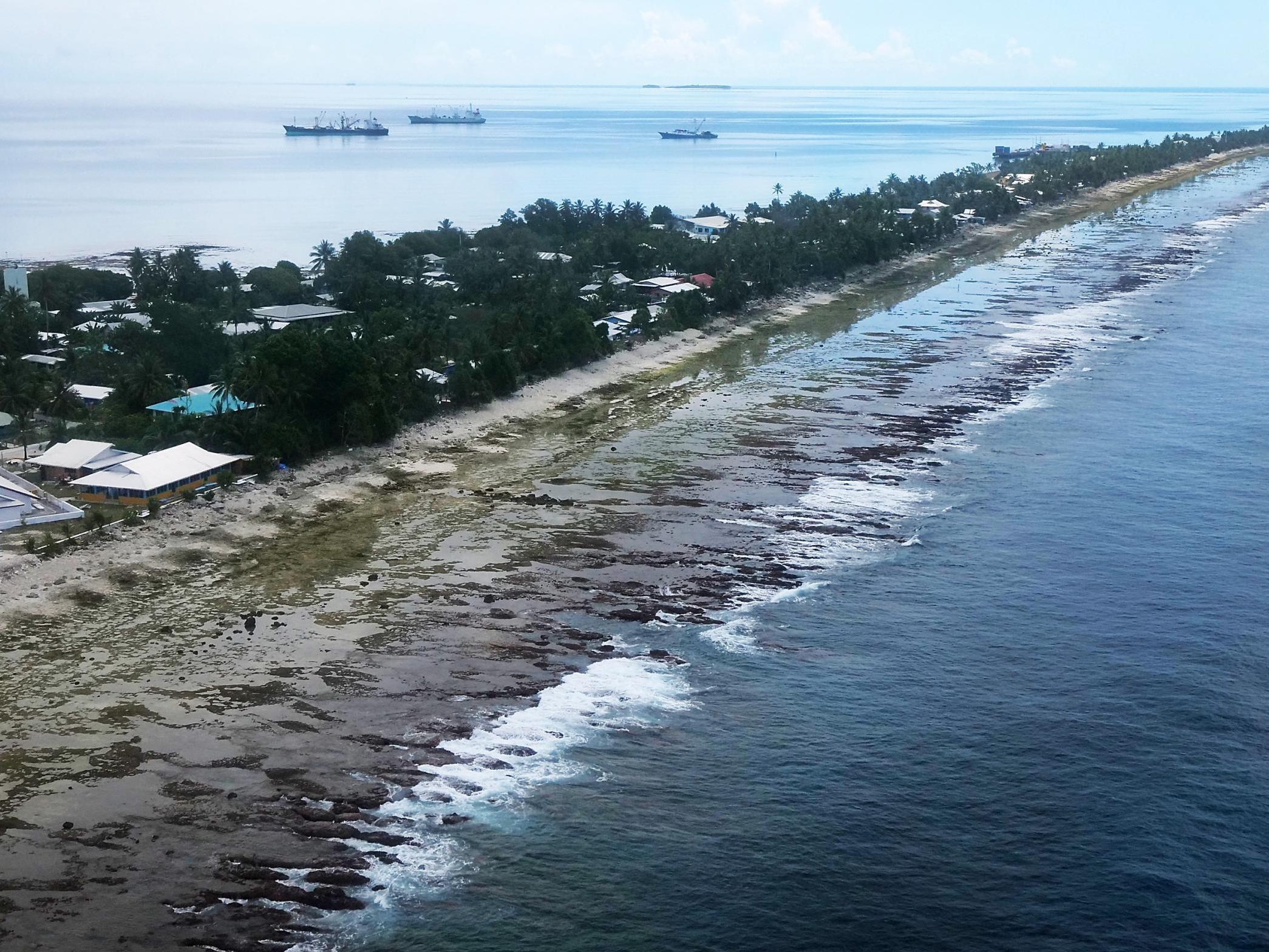Combat climate change by taxing carbon instead of salaries, UN chief urges
'Tax pollution, not people,' secretary-general tells world leaders

Your support helps us to tell the story
From reproductive rights to climate change to Big Tech, The Independent is on the ground when the story is developing. Whether it's investigating the financials of Elon Musk's pro-Trump PAC or producing our latest documentary, 'The A Word', which shines a light on the American women fighting for reproductive rights, we know how important it is to parse out the facts from the messaging.
At such a critical moment in US history, we need reporters on the ground. Your donation allows us to keep sending journalists to speak to both sides of the story.
The Independent is trusted by Americans across the entire political spectrum. And unlike many other quality news outlets, we choose not to lock Americans out of our reporting and analysis with paywalls. We believe quality journalism should be available to everyone, paid for by those who can afford it.
Your support makes all the difference.Governments around the world should tax carbon emissions instead of people’s salaries to limit the damage caused by climate change, the UN secretary-general has said.
Plans for new coal plants must be scrapped and the closure of existing fossil-fuel facilities accelerated if global warming is to halted, Antonio Guterres said on his first visit to the Pacific region “on the frontline” of the climate emergency.
Speaking in Suava, the capital of Fiji, he told the leaders of Pacific island nations they had “a unique moral authority to speak out” and demand more urgent action from governments around the globe.
Mr Guterres will also this week visit the countries of Tuvalu, a tiny archipelago at risk of being swallowed up by rising sea levels, and Vanuatu, which is vulnerable to natural disasters.
He told the Pacific Islands Forum, comprised of officials from 18 nations and territories, he was “here to see the region’s climate pressures first-hand and to learn about the work being undertaken by communities here”.
“Your commitment to adaptation, your need to develop adaptation, requires stronger international support, as climate change is running faster than our efforts to address it,” he said.
“Here in the Pacific, sea-level rise in some countries is four times greater than the global average and is an existential threat to some island states.”
The secretary-general added: “My messages to governments around the world from the Pacific are clear. First, shift taxes from salaries to carbon. Tax pollution, not people.
“Second, stop subsidising fossil fuels. Taxpayer money should not be used to boost hurricanes, spread drought and heatwaves, melt glaciers, and bleach corals.
“Third, stop building new coal plants by 2020. We need a green economy, not a grey economy.”
Pacific island leaders told Mr Guterres they were “running out of time” and faced “an unprecedented global catastrophe”.
They urged him to share their urgent call for action to limit global warming to below 1.5C.
“All countries, with no caveats, must agree to take decisive and transformative action to reduce global emissions, and ensure at scale mitigation and adaption support for those countries that need it,” said a statement from the Pacific Islands Forum.
“If we do not, we will lose. We will lose our homes, our ways of life, our well-being and our livelihoods. We know this because we are experiencing loss already.”
Most low-lying atolls are likely to became unhabitable within decades unless climate change is halted, scientists have warned.
Thousands of islands are likely to be suffer frequent flooding, a lack of fresh water, and infrastructure damage as sea levels rise.
Join our commenting forum
Join thought-provoking conversations, follow other Independent readers and see their replies
Comments